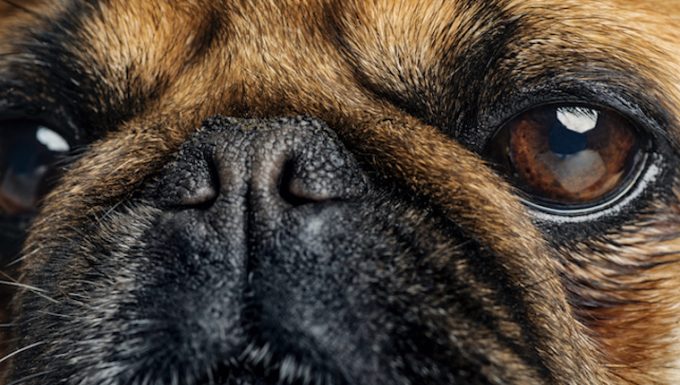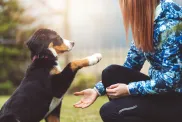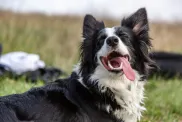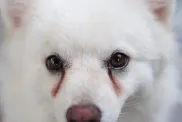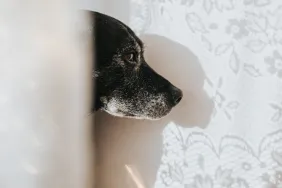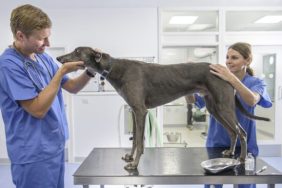Nose pad cancer (squamous cell carcinoma) in dogs is an aggressive type of cancer. The cause of the condition is tumors that grow in the nose and sinus.
Generally, dogs exposed to toxic chemicals such as cigarette smoke and air fresheners are most at risk of developing the condition. Also, dogs with lighter pigmented noses seem to suffer from the condition more than usual.
Technically, the condition is also known as squamous cell carcinoma of nasal planum in dogs.
If you see the signs of the condition in your dog, then get to a veterinarian for a proper diagnosis and treatment.
Here’s what you should know about the symptoms, causes, and treatments for the condition.
Symptoms of Nose Pad Cancer (Squamous Cell Carcinoma) in Dogs
The condition produces a number of symptoms. For example, some of the most common symptoms include:
- Sneezing
- Reverse sneezing
- Mouth breathing
- Nose discharge
- Swelling
- Nosebleeds
- Producing a lot of tears
Causes of the Condition in Dogs
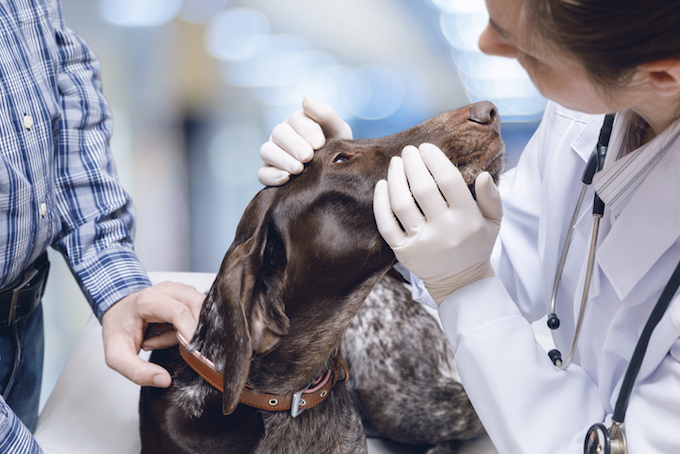
The cause of the condition is unfortunately unknown. However, the following factors are suspected to be involved in causing the condition:
- Cigarette smoke
- Air fresheners
- Fossil fuel byproducts
- Pollutants
- Kerosene heaters
- Excessive sunlight exposure
Additionally, dogs with lighter pigmented noses seem to suffer from the condition more than other dogs.
Treatments for the Condition in Dogs
Firstly, your vet will ask about your dog’s symptoms. Secondly, your vet will ask about your dog’s full medical history.
Thirdly, your vet will carry out a full physical examination. Blood and urine tests will be taken. Additionally, MRIs and CT scans can be used to help confirm the condition. Also, tissue and fluid samples will need to be taken and analyzed.
Generally, treatments focusses on removing any tumors. This is a surgical procedure. Additionally, radiation therapy can be used to try and treat this condition.
While recovering at home, your vet will likely prescribe your dog some pain medication. As always, if your vet prescribes your dog any medicine, make sure to stick to the correct dose and frequency instructions. Also, complete the full course of medicine.
Have you ever cared for a dog who suffered from this condition? How did your vet help your dog recover? Let us know in the comments section below.
